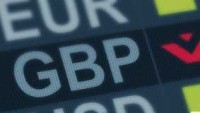 It was a strong week for European equity markets last week, despite an economic backdrop that doesn’t exactly inspire confidence, with the Eurostoxx 50 closing at a 5-month high, while US markets managed to reverse all of their losses from the previous week, with the S&P500 also closing at a five-month high.
It was a strong week for European equity markets last week, despite an economic backdrop that doesn’t exactly inspire confidence, with the Eurostoxx 50 closing at a 5-month high, while US markets managed to reverse all of their losses from the previous week, with the S&P500 also closing at a five-month high.
The FTSE100 also had a decent week posting its first positive week in a month, pushing back towards its 200-day MA, helped by decent performances from the oil and gas, house building and banking sector, all sectors exposed to the UK economy.
The positive vibe from last week appears to have carried over into Asia at the start of the new week, as optimism about a US, China trade deal once again returns to the fore, after reports in the South China Morning Post that further progress was being made towards some form of deal in the coming weeks. This is likely to translate into an accordingly positive open here in Europe this morning.
It would appear that in the wake of last week’s events at Westminster investors are starting to feed money back into UK equities in the hope that some form of soft Brexit will come about in the coming weeks, though that is by no means certain given last week’s political pantomime at Westminster, where Theresa May’s withdrawal agreement came a cropper for the second time.
The Westminster pantomime looks set to continue this week, as expectations rise that the Prime Minister will try for a third time to get her deal passed, ahead of this week’s EU Council meeting at the end of the week, when it is expected the Prime Minister will ask for an extension to article 50, with the only question being as to how long any extension is likely to be. These expectations of a third vote appear to have been tempered slightly by comments at the weekend by Chancellor of the Exchequer Philip Hammond, who suggested that any third attempt to push the bill through the Commons may well be delayed if there is a feeling that it might not get the necessary support from MPs.
This still seems a probable outcome given that it fell short by 149 votes last week, and several Conservative party MPs remain implacably opposed to it, which means that unless the Prime Minister gets the Democratic Unionists on board any attempt to pass the deal looks doomed.
It’s set to be a big week for central banks as well with the Federal Reserve, Bank of England and Swiss National Bank all set to meet.
One of the main reasons that equity markets have rebounded as well as they have since the beginning of the year, is largely due to a change of tack on the part of the Federal Reserve in early January when after heavy falls in stock markets during Q4 they decided to call time on the prospect of further tightening in 2019, as investors started to freak out at the prospect of a possible policy mistake.
The speculation over whether Deutsche Bank and Commerzbankwill undergo a shotgun marriage increased over the weekend when it was disclosed that merger talks had started with a view to exploring the merits of a possible combination.
Under normal circumstance this ought to be a very short conversation as there is little to merit such a merger. Both banks are struggling, with Deutsche trying to turn itself around by slashing costs and updating its systems at a time when most of its European peers have either already done so, or have had a two-year head start.
German policymakers have been concerned for some time at the weakness of its banking system and Deutsche Bank in particular, when three years ago German Chancellor Angela Merkel went as far to rule out rescuing the bank, if it was unable to turn itself around.
Opposition is already rising to the prospect of a tie-up over fears of thousands of job losses, however the biggest obstacle to any merger is likely to be around the valuation of the bank’s assets and liabilities.
Due diligence may well be an old-fashioned concept to some politicians but it is something that investors have learnt to pay attention to in the last few years, given recent mergers which turned out to be disastrous, with RBS/ABN Amro, Lloyds/HBOS and Bankia in Spain, being recent examples.
That’s even before we look at Deutsche’s history and the fact that 9 years on from its Postbank acquisition it still hasn’t fully decided on how the bank fits into its overall business model, with constant on/off speculation as to whether it should be sold off.
Furthermore, any prospective merger would require an accurate forensic evaluation of both banks balance sheets, marking any assets to market, and this could well uncover some nasty surprises. This of course doesn’t mean a merger won’t happen, if politicians want it to happen it probably will, but history tells us it probably won’t end well.
EURUSD – appears to have found some support at the 1.1180 area which is 61.8% retracement of the entire 1.0340/1.2545 up move. We now look to be squeezing higher with a move up to the 1.1400 area a real possibility, on a break above 1.1350.
GBPUSD – pushed up to 9-month high last week and could well head up towards the 1.3500 area in the coming days. We do still remain vulnerable to downward thrusts with support still back down near the 1.3000 area and the 200-day MA.
EURGBP – made a new marginal 22-month low last week, but does appear to have found some support between 0.8475/80. A break below 0.8470, has the potential to target the 200-week MA at 0.8390. Rebounds need to overcome 0.8570 to target 0.8620.
USDJPY – appears to be ranging between the recent highs at 112.20 and support at 110.80, with a break either side opening up the next move. A move below 110.80 runs the risk for a return towards the 110.20 level.
___________
Other Forex Analytics and Forecasts













